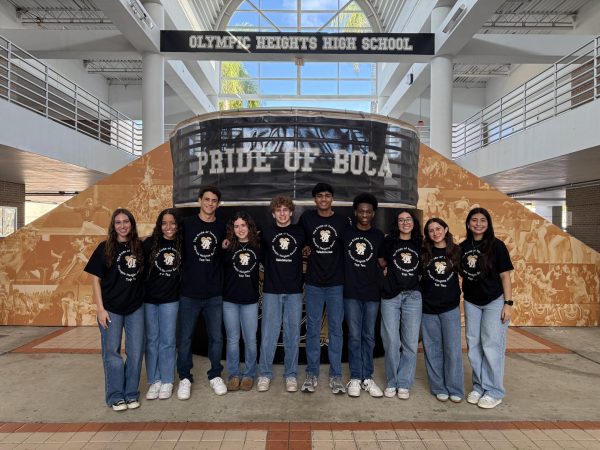Generation Z’s rising political activism could influence 2020 presidential election in Biden’s favor
Generation Z is having an impact in the political arena in a manner unseen by young people since the 1960s.
There are plenty of conversations around the impact Generation Z – generally defined as being made up by those born between the mid-1990s and the early 2010s – will have on America’s future, especially in the political arena.
Although many of Gen Z are still too young to vote, they in fact “are much more diverse and hold more progressive values than previous generations,” BuzzFeed reporter Kate Bubacz writes. She posits that Gen Z is much different than the Baby Boomers – those born between 1946 and 1964 – who still hold considerable political influence.
Gen Z has a better grasp of mature ideals than any previous generation, suggests Bubacz, and have been branded with the label of being “woke.” Gen Z has been involved in many recent protests on various subjects including climate change, racial injustice, as well as issues surrounding the Coronavirus. This generation was raised after the tragedy of 9/11 and is very politically engaged in the uprising of America, as they continue to develop and mature.
In the wake of the death of George Floyd, Americans took to the streets in months-long protests to show their discontent with the criminal justice system and its biases towards African-Americans. The Gen Z helped to fuel the protest by using the popular social media site, TikTok. Gen Z took their activism a step further by starting, what they are calling, a “revolution” and are using TikTok and other social media platforms to fuel this revolution. This may have been taken as a childish prank by many, but these first-time and young voters are using their newfound power to influence the upcoming election.
Much of Gen Z’s enthusiasm to influence the election has been seen clearly in opposition to President Donald Trump’s re-election campaign. On the campaign trail, Trump held a rally on June 20, in Tulsa, Oklahoma, where one of the worst atrocities against African-Americans in this country’s history, the Tulsa Race Massacre of 1921. The Trump campaign claimed to have tens of thousands of tickets reserved for the Tulsa rally, when in reality only approximately 6,000 supporters showed up.
Gen Z had a hand in the lower than anticipated turnout in that they were submitting countless requests to the Trump campaign for tickets to the Tulsa rally with no intention of attending. The Gen Z ticket requests achieved their exact goal, a major embarrassment for Trump.
After this incident, the Trump campaign claimed that the numbers were “bogus” and it was a leftist stunt to make the current president look bad. However, they couldn’t ignore the fact that teenagers in this country had made a significant impact on the campaign through the use of TikTok.
Consequently, it became Trump’s goal to get rid of the popular app on the basis that it is run by the Chinese government and that is being used to steal American data. The most recent scare was on Sept. 20 when the app was set to be banned from all app stores in the US. Fortunately, an American software company, Oracle, along with Walmart, entered a deal with TikTok that would allow them to own 20 percent of the company. Trump has given the deal his blessing, which would hopefully make this the last TikTok scare that Gen Z has to endure.
Despite Trump’s many efforts to end the app as a way to quiet the young voters, many who have the ability to vote for the first time are paying more attention than ever this election. “Because now I’m actually able to vote, I’ve been reading a lot and researching as well as watching documentaries about past political issues,” Olympic Heights senior, Austin Friedenburg said.
“Educating myself has been an important step in realizing my placement on the political compass.” With voter turnout for the 2020 presidential election expected to record breaking, young and first-time voters such as Friedenburg are hoping to make an unprecedented impact.
“You all as students have learned that when you combine your voices for a common goal, change can happen,” OH social studies teacher Ms. Amanda Aiello commented. “I think that the younger generations’ activism could definitely impact the 2020 election since we as a society are so influenced by the messages we receive from the media and that seems to be the avenue the younger generation uses for their message.”
“It’s great that young people are realizing that they can play a role in the future of the country, it gives me hope,” adds OH social studies teacher Mr. Michael Taylor.
Younger voters typically agree closely with Democratic ideological viewpoints and on most policy questions that go against all of Trump’s priorities which he circles around his voting group stereotype: “older, non-urban, non-college-educated, and evangelical white people,” The Atlantic’s Ronald Brownstein asserts. Brownstein goes on to explain how if younger people keep expressing these Democratic values and advance their material interest, they will build the electoral majority in the decades to come.
Gen Z is registering to vote with a dim view of Trump as “about two thirds of respondents [are]disapproving of his [Donald Trumps] performance, Rishika Dugyla and Kamran Rahman of POLITICO state. “If the election were held today, only a quarter of Gen Zers would vote for Trump (half would go to Joe Biden), compared with 42 percent of registered voters,” Dugyala and Rahman claim.
Democrats are hopeful that their presidential nominee Joe Biden will attract a percentage of younger voters that equals or surpasses that of former President Barack Obama’s amazing 60 percent in the 2012 presidential race. During the 2018 midterms, two-thirds of younger adults backed Democrats in House races. Brownstein shares that Ben Wessel, the executive director of NextGen America, a group working to mobilize younger voters for Democrats, states, “We see even people who self-identify as young Republicans disagree with Trump on almost every issue,”
Most of the people in high school right now are not old enough to vote in the upcoming election, but OH senior Chelsea Zipper shares, “I’m voting because I educated myself about who the better candidate is. Voting gives me a voice that I didn’t have before. Posting opinions on social media isn’t the same as actually voting in the election.” Zipper goes on to explain that she feels like her vote can make an impact on America and how being able to vote empowers her as a young American citizen.










